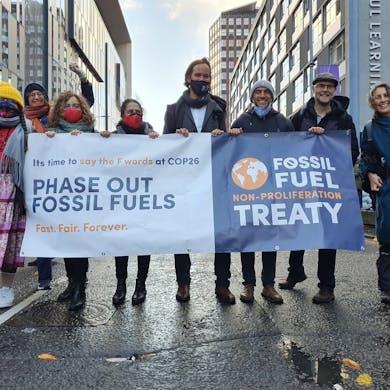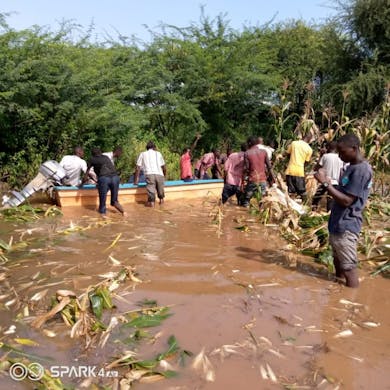Skip to content
Colonialism: Below are some existing definitions of colonialism— ”A practice of domination, which involves the subjugation of one people to another.” (from Stanford Encyclopedia of Philosophy)“When one nation subjugates another, conquering its population and exploiting it, often while forcing its own language and cultural values upon its people.” (from Erin Blakemore in the National Geographic)Read EspañolColonialismo: A continuación se presentan algunas definiciones existentes de colonialismo"Una práctica de dominación, que implica el sometimiento de un pueblo a otro". (de la Enciclopedia de Stanford de Filosofía)"Cuando una nación subyuga a otra, conquistando a su población y explotándola, a menudo mientras impone su propio idioma y valores culturales a su pueblo". (de Erin Blakemore en el National Geographic)Lee Green colonialism: An article by explains green colonialism as follows: “Green colonialism can take different forms in different settings. Broadly, it occurs when the Global North achieves a high standard of living by exploiting the health, labor and land of the Global South. Green colonialism can also take place within a country; interestingly, as we invest in more renewable energy and other conservation activities, it oftentimes comes at the expense of marginalized communities, like indigenous groups. Intentions are good- a conservation group wants to enshrine a forest as protected so that corporations cannot log it at will, for example. However, there may be an indigenous community that has long relied on the forest for medicine, cultural or hunting purposes that is now no longer able to conduct these activities in the forest anymore, and is often forcibly removed. Another example is when a renewable energy company needs to clear land for wind turbines. If a community is living on the land the company wants to build on, it may acquire permission from the government to remove this community from their land, often by force. This is not to say that these projects shouldn’t be embarked upon, but they need to take into consideration the rights of the groups who may be affected by them; ideally they should be included in these projects as indigenous communities have a wealth of knowledge and skills when it comes to preserving ecosystems.“ Read the rest of the article EspañolColonialismo verde: Un artículo de explica el colonialismo verde de la siguiente manera: "El colonialismo verde puede adoptar diferentes formas en distintos escenarios. En términos generales, se produce cuando el Norte Global alcanza un alto nivel de vida explotando la salud, el trabajo y la tierra del Sur Global. El colonialismo verde también puede tener lugar dentro de un país; curiosamente, a medida que invertimos en más energías renovables y otras actividades de conservación, a menudo se produce a expensas de las comunidades marginadas, como los grupos indígenas. Las intenciones son buenas: un grupo conservacionista quiere consagrar un bosque como protegido para que las empresas no puedan talarlo a voluntad, por ejemplo. Sin embargo, puede haber una comunidad indígena que ha dependido durante mucho tiempo del bosque para fines medicinales, culturales o de caza que ahora ya no puede llevar a cabo estas actividades en el bosque, y a menudo es expulsada por la fuerza. Otro ejemplo es cuando una empresa de energías renovables necesita despejar terrenos para instalar turbinas eólicas. Si una comunidad vive en el terreno donde la empresa quiere construir, puede obtener el permiso del gobierno para expulsar a esta comunidad de sus tierras, a menudo por la fuerza. Esto no quiere decir que no se deban emprender estos proyectos, pero es necesario que se tengan en cuenta los derechos de los grupos que pueden verse afectados por ellos; lo ideal sería incluirlos en estos proyectos, ya que las comunidades indígenas tienen una gran riqueza de conocimientos y habilidades cuando se trata de preservar los ecosistemas". Lee el resto del artículo Extractivism: Scholar Diana Vela Almeida states: “One could simply define extractivism as a productive process where natural resources are removed from the land or the underground and then put up for sale as commodities on the global market. But defining extractivism is not really this easy. Extractivism is related to existing geopolitical, economic and social relations produced throughout history. It is an economic model of development that transnational companies and states practice worldwide and that can be traced back more than 500 years all the way to the European colonial expansion.” Read the rest of her article EspañolExtractivismo: La académica Diana Vela Almeida afirma: "Se podría definir simplemente el extractivismo como un proceso productivo en el que los recursos naturales se extraen de la tierra o del subsuelo y se ponen a la venta como mercancías en el mercado mundial. Pero definir el extractivismo no es realmente tan fácil. El extractivismo está relacionado con las relaciones geopolíticas, económicas y sociales existentes producidas a lo largo de la historia. Es un modelo económico de desarrollo que las empresas transnacionales y los Estados practican en todo el mundo y que puede remontarse a más de 500 años, hasta la expansión colonial europea". Lee el resto de su artículo Capitalism: “A widely adopted economic system in which there is private ownership of the means of production. Modern capitalist systems usually include a market-oriented economy, in which the production and pricing of goods, as well as the income of individuals, are dictated to a greater extent by market forces resulting from interactions between private businesses and individuals than by central planning undertaken by a government or local institution. Capitalism is built on the concepts of private property, profit motive, and market competition.” ()EspañolCapitalismo: "Sistema económico ampliamente adoptado en el que existe la propiedad privada de los medios de producción. Los sistemas capitalistas modernos suelen incluir una economía orientada al mercado, en la que la producción y la fijación de precios de los bienes, así como los ingresos de los individuos, están dictados en mayor medida por las fuerzas del mercado resultantes de las interacciones entre las empresas privadas y los individuos que por la planificación central llevada a cabo por un gobierno o institución local. El capitalismo se basa en los conceptos de propiedad privada, ánimo de lucro y competencia de mercado". ()Exploitation: “The act of using someone unfairly for your own advantage.”EspañolExplotación: "El acto de utilizar a alguien injustamente para su propio beneficio".Oppression: “A situation in which people are governed in an unfair and cruel way and prevented from having opportunities and freedom.”EspañolOpresión: "Situación en la que las personas son gobernadas de forma injusta y cruel y se les impide tener oportunidades y libertad".Most affected people and areas (MAPA): Check out by FFF MAPA and Atmos for a description of what MAPA is and who it encompasses.EspañolPersonas y zonas más afectadas (MAPA): Consulta este Climate reparations: Dr. Audrey Chapman and Dr. Karim Ahmed from the University of Connecticut explain climate reparations as follows: “Reparations are generally understood as an effort to redress significant societal harm through acknowledgment of wrongdoing and through in-kind and monetary means. Reparatory justice also entails acceptance of responsibility, followed by undertaking measures that seek to address and repair societal injustices and widespread harms. Applied to climate change, reparations would first entail identifying those entities—both countries and private corporations—whose greenhouse gas emissions have contributed the most to climate change.”EspañolReparaciones climáticas: La Dra. Audrey Chapman y el Dr. Karim Ahmed de la Universidad de Connecticut explican las reparaciones climáticas de la siguiente manera: "Las reparaciones se entienden generalmente como un esfuerzo para reparar un daño social significativo a través del reconocimiento de las infracciones y a través de medios en especie y monetarios. La justicia reparadora también implica la aceptación de la responsabilidad, seguida de la adopción de medidas que tratan de abordar y reparar las injusticias sociales y los daños generalizados. Aplicada al cambio climático, la reparación implicaría en primer lugar la identificación de las entidades -tanto países como empresas privadas- cuyas emisiones de gases de efecto invernadero han contribuido en mayor medida al cambio climático".Transformative justice: According to writer Mia Mingus: “Transformative Justice (TJ) is a political framework and approach for responding to violence, harm and abuse. At its most basic, it seeks to respond to violence without creating more violence and/or engaging in harm reduction to lessen the violence.” Check out a video on the term EspañolJusticia transformadora: Según la escritora Mia Mingus "La justicia transformadora (TJ) es un marco y un enfoque político para responder a la violencia, el daño y el abuso. En su forma más básica, trata de responder a la violencia sin crear más violencia y/o participar en la reducción del daño para disminuir la violencia". Vea un vídeo sobre el término Patriarchy: A system of society or government in which primarily men hold power and control over aspects of society such as property and policy, while women (+other genders) are largely excluded from it.EspañolPatriarcado: Sistema de sociedad o gobierno en el que principalmente los hombres tienen el poder y el control sobre aspectos de la sociedad como la propiedad y la política, mientras que las mujeres (+otros géneros) están en gran medida excluidas de él.Anti-patriarchal: In opposition to the patriarchy.EspañolAntipatriarcal: En oposición al patriarcado.Land back: Indigenous activist Ronald Gamblin explains the term as follows: “...this phrase encompasses a complicated and intergenerational web of ideas/movements. When I hear Indigenous youth and land protectors chant “Land Back!” at a rally, I know it can mean the literal restoration of land ownership. When grandmothers and knowledge keepers say it, I tend to think it means more the stewardship and protection of mother earth. When Indigenous political leaders say it, it often means comprehensive land claims and self-governing agreements. No matter what meaning is attached, we as Indigenous nations have an urge to reconnect with our land in meaningful ways.” Read more in his article Climate adaptation: According to the UNFCCC, “Adaptation refers to adjustments in ecological, social, or economic systems in response to actual or expected climatic stimuli and their effects or impacts. It refers to changes in processes, practices, and structures to moderate potential damages or to benefit from opportunities associated with climate change.”Redistribution: As defined by Cambridge Dictionary, "the act of sharing something out differently from before, especially in a fairer way.” Applying this to income inequality, it would mean allocating wealth from wealthy individuals to individuals from low-income backgrounds and households, on an economy-wide basis, through different political means.Collectivization: “The act or process of organizing a people, industry, enterprise, etc., according to collectivism, an economic system in which control, especially of the means of production, is shared cooperatively or centralized.” as defined by the dictionary.Loss and damages: The harmful impacts and consequences of the climate crisis.Class struggle: The political and economic conflicts that exist between the working class and ruling class.Ruling class: The social class that has power and authority over a country’s politics.Global North: Generally used to refer to countries that are “wealthy” and “industrialized,” primarily getting to the point they are now through the colonization and exploitation of another country/continent/community. The Global North encompasses North America, Europe, Australia, and certain parts of Asia.White supremacy: “Beliefs and ideas purporting natural superiority of the lighter-skinned, or “white,” human races over other racial groups.” (Britannica)Global South: As scholar Anne Garland Mahler puts it: “Spaces and peoples negatively impacted by contemporary capitalist globalization.” A term that refers to countries that are considered “underdeveloped,” though overexploited is more accurate. Working class: “A social group that consists of people who earn little money, often being paid only for the hours or days that they work, and who usually do physical work.” (from Cambridge Dictionary) Colonizer(s): Person, country, or entity that engages in colonialism, i.e. takes control of a country or region that is not their own through force and exploitation of some sort.Decolonization: “Decolonization is the process of deconstructing colonial ideologies of the superiority and privilege of Western thought and approaches. On the one hand, decolonization involves dismantling structures that perpetuate the status quo and addressing unbalanced power dynamics. On the other hand, decolonization involves valuing and revitalizing Indigenous knowledge and approaches and weeding out settler biases or assumptions that have impacted Indigenous ways of being. For non-Indigenous people, decolonization is the process of examining your beliefs about Indigenous Peoples and culture by learning about yourself in relationship to the communities where you live and the people with whom you interact.” ()Marginalized communities: “Communities that experience discrimination and exclusion (social, political and economic) because of unequal power relationships across economic, political, social and cultural dimensions.”1%: Used to refer to the wealthiest one percent of the world / a nation’s population.

 March 25 #PeopleNotProfit/25 de Marzo
March 25 #PeopleNotProfit/25 de Marzo
Share this toolkit: bit.ly/march-25
Click each button above to take action (Haga click en cada botón de arriba para tomar acciones)
If you can’t make it to a physical climate strike, here are impactful digital actions you can take anywhere, anytime! / Si no puedes asistir a una huelga climática física, ¡aquí hay algunas acciones digitales impactantes que puedes tomar en cualquier lugar y en cualquier momento!
The catastrophic climate scenario that we are living in is the result of centuries of exploitation and oppression through colonialism, extractivism and capitalism, an essentially flawed socio-economic model which urgently needs to be replaced.
Guided by historical struggles and lived experiences, led by the most affected people and areas (MAPA), we are demanding climate reparations and loss and damage finance Now. This should not be in the form of loans, but a follow through on the demands from Indigenous, black, anti-patriarchal and diverse marginalized communities to get their lands back, giving resources to the most affected communities by the climate crisis for adaptation, loss and damages – a redistribution of wealth and political power both from the north to the south, and from top to bottom.
Together with different sectors of society across the world, led by the most marginalized, let’s bring back the power to the people whose power has been stolen. Together, let’s build a system and home where we prioritize #PeopleNotProfit.
← Click on the triangle for glossary and translations/Haga clic en el triángulo para ver las traducciones
Traducciones
El escenario climático catastrófico en el que vivimos es el resultado de siglos de explotación y opresión a través del colonialismo, el extractivismo y el capitalismo, un modelo socioeconómico esencialmente defectuoso que necesita ser reemplazado con urgencia.
Guiados por luchas históricas y experiencias vividas, liderados por las personas y áreas más afectadas (MAPA), estamos exigiendo reparaciones climáticas y financiamiento de pérdidas y daños AHORA. Esto no debe ser en forma de préstamos, sino un seguimiento a las demandas de varias comunidades indígenas, negras, antipatriarcales y marginadas para recuperar sus tierras, dando recursos a las comunidades más afectadas por la crisis climática para la adaptación, pérdida y daño: una redistribución de la riqueza y el poder político tanto de norte a sur como de arriba hacia abajo.
Junto con diferentes sectores de la sociedad en todo el mundo, liderados por los más marginados, devolvamos el poder a las personas cuyo poder ha sido robado. Juntos, construyamos un sistema y un hogar donde prioricemos #PeopleNotProfit (Personas sobre el capital).
Glossary of Terms
article from the Indigenous Peoples Atlas of Canada, detailing the impacts of colonialism on Inuit communities, culture, and livelihoods.
artículo del Atlas de los Pueblos Indígenas de Canadá, que detalla las repercusiones del colonialismo en las comunidades, la cultura y los medios de vida de los inuit.
. Also on how the Indigenous Sámi people in Norway are impacted by green colonialism.
. Consulte también un sobre cómo el pueblo indígena sami de Noruega se ve afectado por el colonialismo verde.
.
.
del FFF MAPA y Atmos para ver una descripción de lo que es el MAPA y a quiénes engloba.
.
.
. Also check out an article by Grist on the phrase,
.How you can help/Como puedes ayudar
If we mobilize online together right now, we'll be able to build a world that prioritizes #PeopleNotProfit / Si nos movilizamos juntos en línea ahora mismo, podemos construir un mundo que priorice #PeopleNotProfit
Sign the letter from youth activists calling for a #FossilFuelTreaty to manage a rapid just transition away from coal, oil and gas globally. / Firma la carta que pide el Tratado de Combustibles Fósiles para que podamos eliminar la mayor arma de destrucción masiva de la actualidad.
Action page / Pagina de acción :
Directly target polluters and the 1% through digital actions specific to your region / Apunta directamente a los contaminantes y al 1% a través de acciones digitales específicas para tu región
Support MAPA (most affected people and areas) climate disaster relief through lens of climate reparations and loss and damage finance / Apoyar en caso de catástrofe climática de MAPA (personas y zonas más afectadas) a través de la visión de las reparaciones climáticas y la financiación de pérdidas y daños
In order to make an impact, we need everyone to share as far wide as possible! Ask your friends and family to sign, take a picture of yourself with a sign and/or a graphic and post on Twitter, Facebook, Instagram, and other socials to call people to take action! / Para lograr un impacto, ¡Necesitamos que todo el mundo lo comparta todas las veces posibles! Pide a tus amigos y familiares que firmen, hazte una foto con un cartel y/o un gráfico y publícala en Twitter, Facebook, Instagram y otras redes sociales para motivar a la gente a actuar.
Thank you to all the groups involved/ Gracias a todos los grupos involucrados:
Loss and Damage Youth Coalition
Fridays For Future Japan
Climate Strike Canada
Greenpeace
Extinction Rebellion
350 Canada
350 Eigo
Stop Cambo
Youtheoria
YouthNet for Climate Justice Bangladesh
Universal Rights
Extinction Rebellion Youth Solidarity
Earthtopia
Fridays For Future Bangladesh
350 America Latina
Youth Climate Action Team Canada
Fridays For Future Iran
Extinction Rebellion Philippines
Extinction Rebellion UK
Green New Deal Rising
ResistTwo
Greenpeace Africa
Zero Hour
Want to print your doc?
This is not the way.
This is not the way.

Try clicking the ··· in the right corner or using a keyboard shortcut (
CtrlP
) instead.





